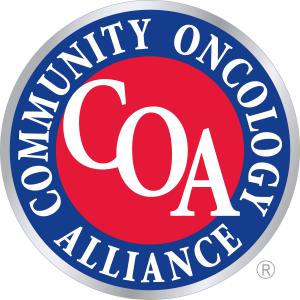Community Oncology Alliance Logo
Prescription Drug Pricing Reform Provisions Adversely Put Providers in the Middle as Hostages Between the Government and Drug Companies
History has clearly documented that bluntly cutting Medicare payments like proposed in the reconciliation bill, will lead to cancer practice closures and consolidations.”
— Ted Okon, COA
VIRGINIA BEACH, VIRGINIA, UNITED STATES, July 7, 2022 /EINPresswire.com/ -- The proposed Prescription Drug Pricing Reform provisions in the reconciliation bill that Senate Democrats are crafting implements the negotiation of drug prices in such a way that community oncology practices, as well as other specialty medical practices treating serious diseases, will face unbearable financial risk. This is because, as currently drafted, practices will be reimbursed at much lower negotiated rates relative to the underlying costs of drugs. This comes at a time when practices are still dealing with the increased costs of COVID, severe inflation, and sequestration.
History has clearly documented that bluntly cutting Medicare payments like proposed in the reconciliation bill, will lead to cancer practice closures and consolidations. Following the last major overhaul of payment with the Medicare Modernization Act of 2003, the chemotherapy delivered by independent community oncology practices declined by 64.3%. In subsequent years, 1,748 community oncology clinics and/or practices have closed, been acquired by hospitals, undergone corporate mergers, or reported that they are struggling financially.
When independent practices close, the care almost always moves into the much more expensive hospital site of service. Furthermore, access to care is threatened as cancer clinics and other specialty facilities close, especially in rural areas, due to financial pressures.
Hospitals are far more expensive sites of service that exorbitantly mark-up drug prices for patients with cancer and charge much more for related care. A study by COA shows that hospitals charge patients and insurers an average of 3.8 times the cost for already expensive cancer treatments. Another study from researchers at the University of California Berkeley found that hospital outpatient department prices were double those paid in physician offices for cancer drugs, and that patient out-of-pocket costs are substantially higher for hospital-based cancer care.
There is a relatively simple fix that Congress can make that will take providers out of the middle of negotiations between the government and drug manufacturers. COA has developed language such that drug manufacturers directly refund the government excess costs above negotiated prices. This creates a direct transaction between the government and drug manufacturers and does not put physicians in the middle, exposed to untenable financial cuts and risk. There is already a precedent for manufacturers to rebate the government in the way COA proposes.
###
About the Community Oncology Alliance: The Community Oncology Alliance (COA) is a non-profit organization dedicated to advocating for community oncology practices and, most importantly, the patients they serve. COA is the only organization dedicated solely to community oncology where the majority of Americans with cancer are treated. The mission of COA is to ensure that patients with cancer receive quality, affordable, and accessible cancer care in their own communities. More than 1.5 million people in the United States are diagnosed with cancer each year and deaths from the disease have been steadily declining due to earlier detection, diagnosis, and treatment. Learn more about COA at communityoncology.org.
Drew Lovejoy
Community Oncology Alliance
email us here
![]()


